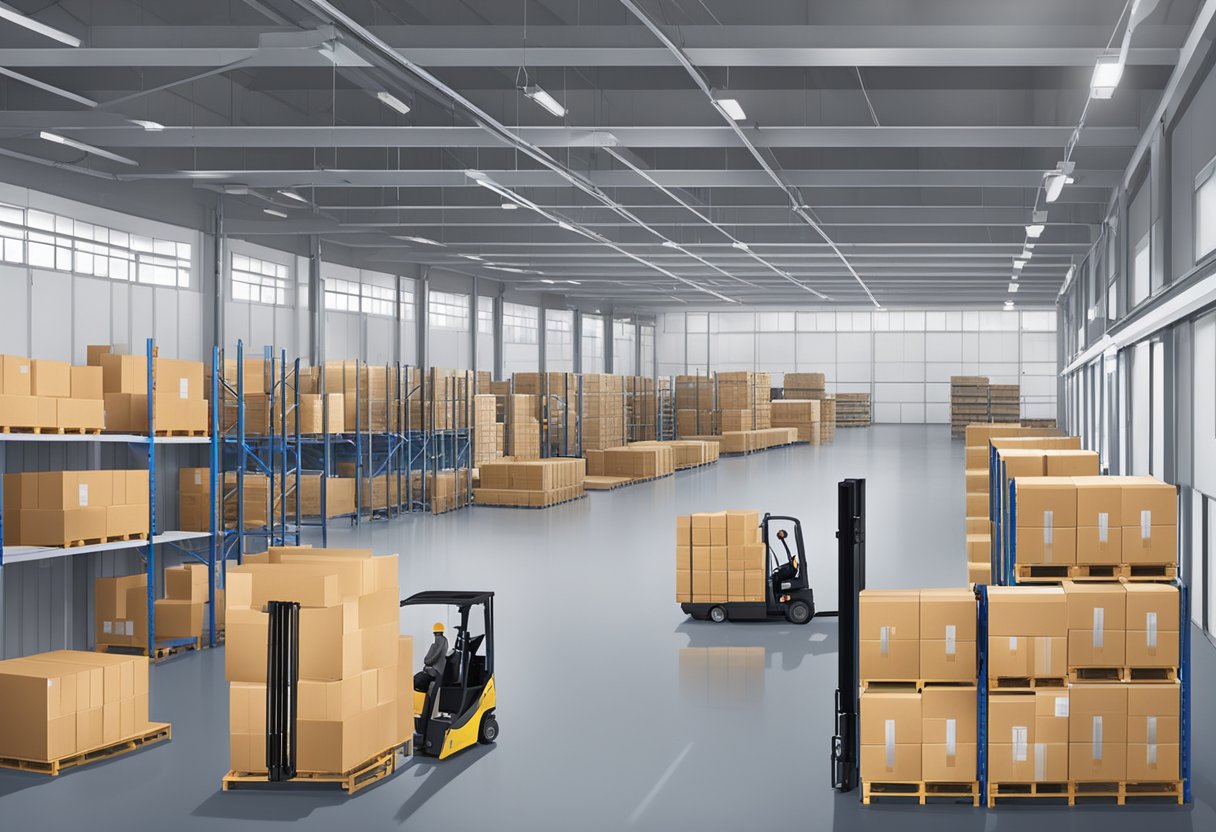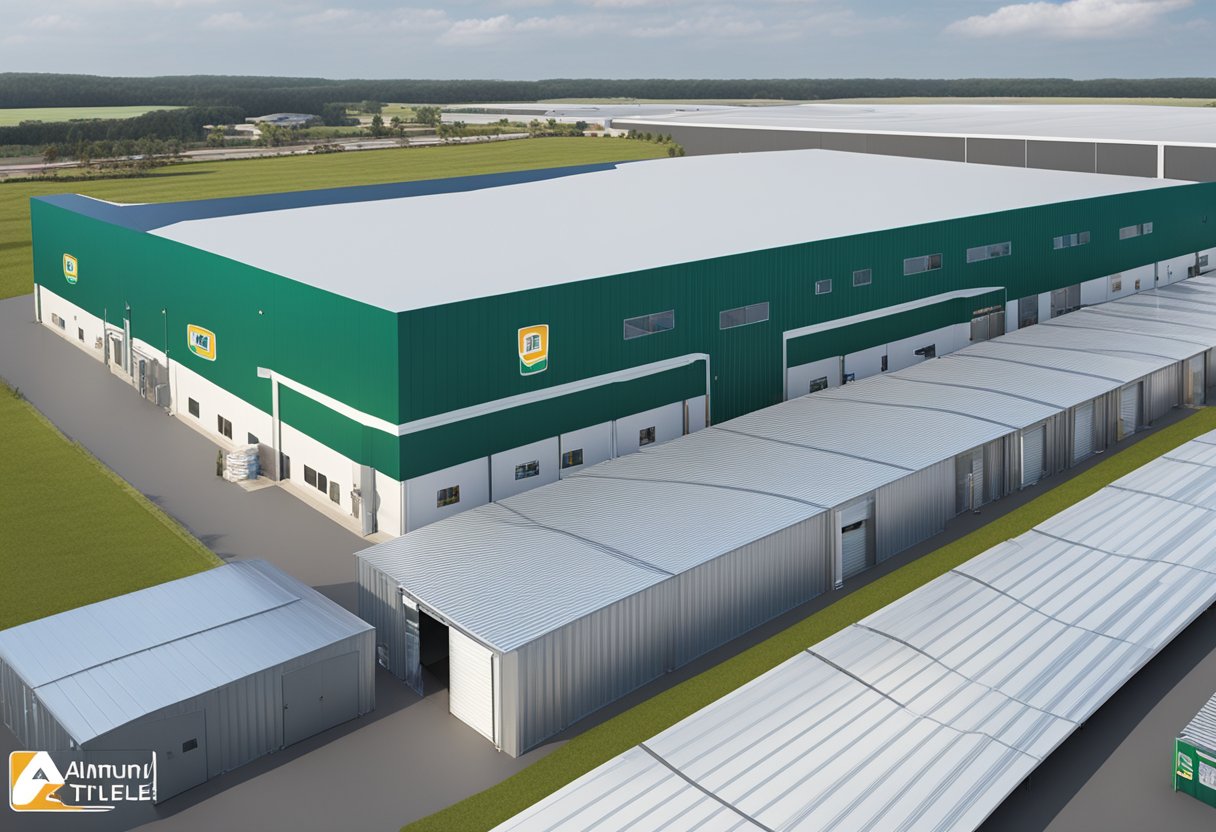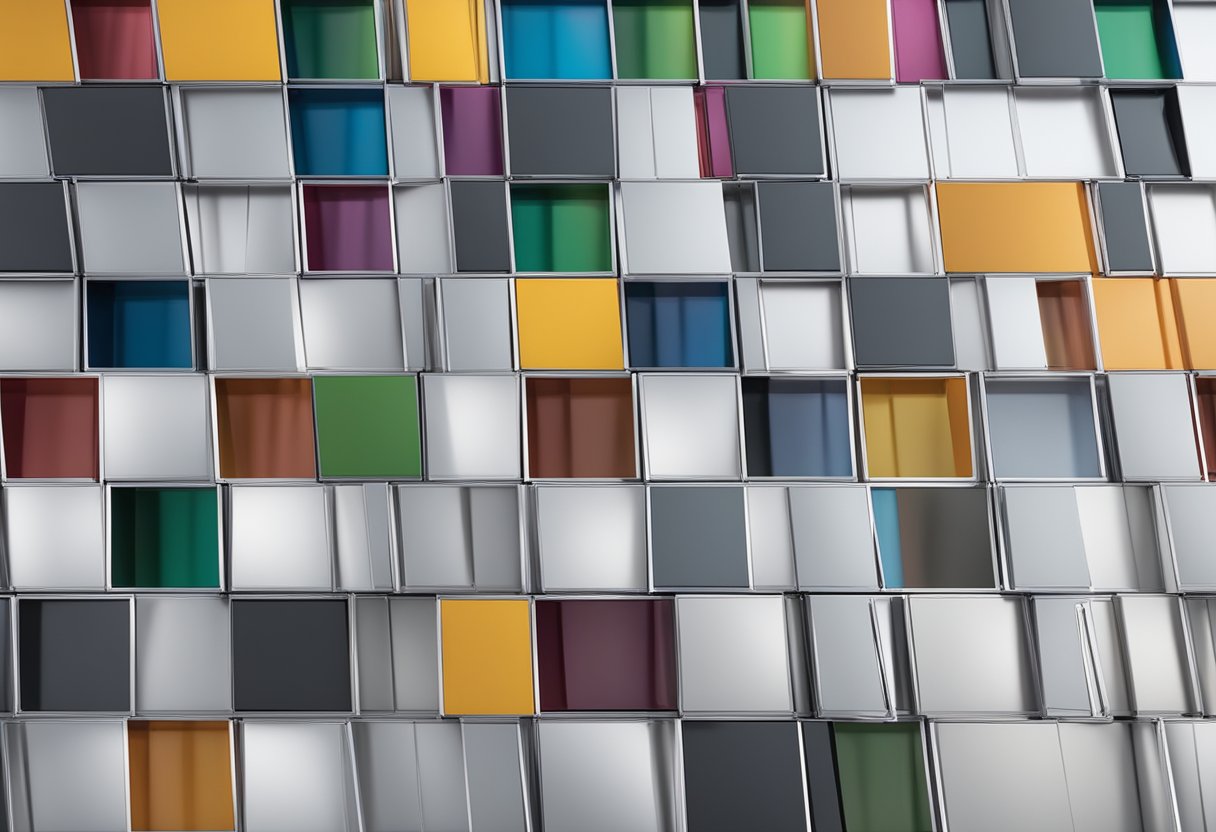Aluminum composite panels (ACP) are widely used in the construction industry due to their durability, lightweight, and aesthetic appeal. ACP consists of two aluminum sheets bonded to a non-aluminum core, providing a strong and rigid material that can be used for various applications. As the demand for ACP continues to rise, the need for reliable and trustworthy suppliers becomes increasingly important.

Finding a reputable aluminum composite panel supplier is crucial to ensuring the quality and safety of the final product. A reliable supplier should provide high-quality materials, competitive pricing, and exceptional customer service. With so many suppliers in the market, it can be overwhelming to choose the right one. This article aims to provide an overview of the top aluminum panels suppliers and their offerings, helping readers make an informed decision when selecting a supplier for their project.
Overview of Aluminum Composite Panels

Aluminum Composite Panels (ACPs) are a popular building material used for both interior and exterior applications. ACPs consist of two thin aluminum sheets bonded to a non-aluminum core, typically made of polyethylene or fire-resistant mineral-filled core.
ACPs offer a range of benefits, including lightweight construction, durability, and ease of installation. They are also available in a variety of colors and finishes, making them a versatile option for architects and designers.
ACPs are commonly used in the construction of facades, curtain walls, and cladding systems. They are also used for signage, partitions, and interior wall panels.
It is important to note that not all ACPs are created equal. The quality and safety of ACPs can vary depending on the manufacturer and supplier. It is essential to choose a reputable supplier who provides ACPs that meet industry standards and regulations.
In summary, ACPs are a popular building material due to their versatility, durability, and ease of installation. However, it is crucial to choose a reliable supplier to ensure the safety and quality of the product.
Types of Aluminum Composite Panels

Polyethylene Core Panels
Polyethylene core panels are the most commonly used type of aluminum composite panels. These panels have a polyethylene core sandwiched between two aluminum sheets. The polyethylene core provides excellent insulation and flexibility, making it ideal for use in a variety of applications such as signage, cladding, and interior decoration. Polyethylene core panels are lightweight, easy to install, and cost-effective.
Fire-Retardant Core Panels
Fire-retardant core panels are designed to meet the fire safety requirements of buildings. These panels have a core made of fire-retardant materials such as mineral-filled core or aluminum honeycomb core. Fire-retardant core panels are used in high-rise buildings, hospitals, schools, and other public places where fire safety is a critical concern. These panels are also lightweight, durable, and easy to install.
Aluminum Honeycomb Panels
Aluminum honeycomb panels have a honeycomb core made of aluminum, which provides excellent strength and durability. These panels are used in applications where high strength-to-weight ratio is required, such as aerospace, marine, and transportation industries. Aluminum honeycomb panels are also used in architectural applications such as cladding, roofing, and interior decoration. These panels are lightweight, corrosion-resistant, and have excellent sound and thermal insulation properties.
In summary, there are three main types of aluminum composite panels: polyethylene core panels, fire-retardant core panels, and aluminum honeycomb panels. Each type has its unique properties and advantages, making it suitable for different applications. When choosing an aluminum composite panel supplier, it is important to consider the type of panel that best suits your needs and requirements.
Benefits of Using Aluminum Composite Panels

Aluminum composite panels (ACPs) have become a popular building material in recent years. They offer a range of benefits, making them a preferred choice for architects, engineers, and builders alike. Here are some of the key advantages of using ACPs:
Durability
ACPs are known for their durability and long lifespan. They are made of two aluminum sheets that are bonded to a non-aluminum core, which provides strength and stability. The combination of these materials makes ACPs resistant to weather, corrosion, and impact. They can withstand extreme temperatures, making them suitable for use in a variety of climates.
Aesthetics
ACPs are available in a wide range of colors, finishes, and textures, making them a versatile choice for architects and designers. They can be customized to match the design of any building, whether it’s a commercial, residential, or industrial property. ACPs are also lightweight and easy to install, which adds to their aesthetic appeal.
Cost-Effectiveness
ACPs are a cost-effective alternative to traditional building materials. They are less expensive than materials like marble, granite, and wood, yet they offer similar benefits in terms of durability and aesthetics. Additionally, ACPs require minimal maintenance, which reduces long-term costs.
In conclusion, ACPs offer a range of benefits that make them an attractive choice for building projects. Their durability, aesthetic appeal, and cost-effectiveness make them a popular choice among architects, engineers, and builders.
Applications of Aluminum Composite Panels
Aluminum composite panels (ACPs) have become increasingly popular due to their versatility and durability. They are widely used in a variety of applications, including building cladding, advertising boards, and interior decoration.
Building Cladding
ACPs are commonly used as building cladding because of their lightweight, weather-resistant, and fire-retardant properties. They can be easily installed and provide a modern and sleek look to buildings. ACPs are also available in a variety of colors and finishes, making them a popular choice for architects and builders.
Advertising Boards
ACPs are also used for advertising boards because of their ability to display high-quality graphics and images. They are commonly used for billboards, shop signs, and trade show displays. ACPs are also weather-resistant and can withstand harsh outdoor conditions, making them a reliable choice for outdoor advertising.
Interior Decoration
ACPs are also used for interior decoration because of their ability to provide a modern and stylish look to any space. They are commonly used for wall cladding, ceiling panels, and furniture. ACPs are available in a variety of colors and finishes, making them a popular choice for interior designers and architects.
In summary, aluminum composite panels are a versatile and durable material that can be used in a variety of applications. They provide a modern and sleek look to buildings, advertising boards, and interior spaces. ACPs are a reliable and cost-effective choice for any project that requires a lightweight and weather-resistant material.
Criteria for Selecting a Supplier
When it comes to selecting a supplier for aluminum composite panels, it is important to consider a few key criteria. These criteria will help ensure that you choose a supplier who can provide you with the quality materials you need, at a price that fits your budget, and within a timeframe that works for your project.
Quality Assurance
One of the most important criteria to consider when selecting a supplier is their quality assurance processes. You want to work with a supplier who has a proven track record of producing high-quality aluminum composite panels that meet industry standards. Look for suppliers who have certifications or accreditations from reputable organizations, such as the International Organization for Standardization (ISO) or the American Architectural Manufacturers Association (AAMA).
Pricing
Another important criterion to consider is pricing. While you don’t want to sacrifice quality for price, you also don’t want to overspend on materials. Look for suppliers who offer competitive pricing on their aluminum composite panels. It is also important to consider any additional costs, such as shipping or handling fees, when comparing prices.
Delivery Timescales
Finally, it is important to consider delivery timescales when selecting a supplier. You want to work with a supplier who can provide you with the materials you need when you need them. Look for suppliers who have a proven track record of meeting delivery deadlines and who offer expedited shipping options if needed.
Overall, selecting a supplier for aluminum composite panels requires careful consideration of several key criteria. By taking the time to evaluate potential suppliers based on their quality assurance processes, pricing, and delivery timescales, you can ensure that you choose a supplier who can meet your needs and help you complete your project successfully.
Installation Techniques
Tools and Equipment
To ensure proper installation of aluminum composite panels, it is important to have the right tools and equipment. The following tools are essential for the installation process:
- Circular saw or jigsaw
- Handheld drill
- Rivet gun
- Measuring tape
- Level
- Safety equipment (gloves, safety glasses, earplugs)
It is recommended to use blades specifically designed for cutting aluminum composite panels to avoid chipping or cracking the material.
Safety Measures
Safety should be a top priority during the installation process of aluminum composite panels. The following safety measures should be taken:
- Wear safety equipment (gloves, safety glasses, earplugs) to protect against sharp edges and loud noises.
- Use a stable ladder or scaffolding to reach high areas.
- Avoid working in wet or windy conditions.
- Keep the work area clean and free of debris to prevent slips and falls.
Maintenance Tips
Proper maintenance of aluminum composite panels can prolong their lifespan and maintain their appearance. The following tips should be followed:
- Clean the panels regularly with a mild detergent and water to remove dirt and debris.
- Avoid using abrasive cleaners or scrubbers that can damage the surface.
- Inspect the panels for any signs of damage or wear, and repair or replace them as necessary.
- Avoid exposing the panels to extreme temperatures or direct sunlight for prolonged periods of time.
By following these installation techniques, the installation process of aluminum composite panels can be completed safely and effectively.
Certifications and Standards
ISO Certifications
ISO certification is a globally recognized standard that ensures quality management and environmental management systems. Aluminum composite panel suppliers who have ISO 9001 and ISO 14001 certifications demonstrate their commitment to providing high-quality products and services while minimizing their environmental impact. These certifications indicate that the company has established and implemented a quality management system and an environmental management system that meets international standards.
Building Code Compliance
Aluminum composite panel suppliers must comply with building codes and regulations to ensure that their products meet safety requirements. These codes and regulations vary by country and region, but suppliers must ensure that their products meet the minimum requirements for fire safety, wind load resistance, and other structural requirements. Suppliers who can provide documentation demonstrating compliance with relevant building codes and regulations can give customers confidence in the safety and reliability of their products.
Environmental Standards
Aluminum composite panel suppliers who prioritize environmental sustainability can obtain certifications such as LEED, BREEAM, or Green Star. These certifications demonstrate that the supplier has taken steps to reduce their environmental impact and promote sustainability. Additionally, suppliers who use recycled materials in their products or have implemented a recycling program can further demonstrate their commitment to environmental responsibility.
Overall, customers should look for aluminum composite panel suppliers who have obtained relevant certifications and who prioritize quality, safety, and environmental sustainability. By working with a reputable supplier, customers can ensure that they are receiving high-quality products that meet their needs and align with their values.
Global Market Trends
The global aluminum composite panel market has been growing steadily over the past few years. The demand for these panels has been increasing due to their lightweight, durability, and cost-effectiveness. The market is expected to continue growing at a CAGR of 6.5% from 2021 to 2028.
Asia-Pacific is the largest market for aluminum composite panels, accounting for more than 50% of the global demand. The region is expected to continue dominating the market due to the increasing construction activities and urbanization in countries such as China and India.
Europe and North America are also significant markets for aluminum composite panels. The demand in these regions is driven by the increasing use of these panels in the construction of commercial buildings, hospitals, and educational institutions.
The global market is highly competitive, with several players operating in the market. Some of the major players in the market include 3A Composites GmbH, Alubond U.S.A, Alumax Industrial Co., Ltd., Alstrong Enterprises India (Pvt) Ltd., and Alucobond.
The market is characterized by the presence of several small and large players. The key players in the market are focusing on expanding their product portfolio and increasing their production capacity to meet the growing demand. They are also investing in research and development to introduce innovative products in the market.
In conclusion, the global aluminum composite panel market is expected to continue growing in the coming years due to the increasing demand from the construction industry. The market is highly competitive, and the key players are focusing on expanding their product portfolio and increasing their production capacity to stay ahead in the market.
Challenges and Risks
Environmental Impact
Aluminum composite panels have been criticized for their environmental impact. The manufacturing process of these panels involves the use of non-renewable resources and the emission of greenhouse gases. Additionally, when disposed of, the panels may release toxic chemicals into the environment. As a result, suppliers are under pressure to develop more sustainable production methods and to promote the recycling of used panels.
Market Volatility
The aluminum composite panel market is subject to fluctuations in demand, supply, and pricing. Changes in the construction and architecture industries, as well as economic conditions and geopolitical events, can all impact the market. This volatility can lead to uncertainty for suppliers, making it difficult to plan and manage their operations effectively.
Regulatory Challenges
The use of aluminum composite panels in building construction is subject to regulations and standards that vary by region. Compliance with these regulations can be complex and time-consuming for suppliers. Additionally, there is a risk of non-compliance, which can result in fines, legal action, and damage to the supplier’s reputation. As regulations continue to evolve, suppliers must stay up-to-date and adapt their practices accordingly.
In summary, suppliers of aluminum composite panels face a range of challenges and risks, from environmental concerns to market volatility and regulatory compliance. However, by staying informed and proactive, suppliers can mitigate these risks and continue to provide high-quality products to their customers.
Future of Aluminum Composite Panels
Aluminum composite panels have become increasingly popular in the construction industry due to their lightweight, durability, and aesthetic appeal. As technology advances, aluminum composite panel suppliers are looking for ways to improve the product even further and meet the growing demand for sustainable building materials.
One trend that is expected to shape the future of aluminum composite panels is the use of eco-friendly materials. Manufacturers are exploring the use of recycled aluminum and other sustainable materials to reduce the environmental impact of the production process. This shift towards sustainability is driven by the increasing awareness of the need to reduce carbon footprint and promote green building practices.
Another area of development is the improvement of fire safety standards. In recent years, there have been concerns about the fire safety of aluminum composite panels, especially after the Grenfell Tower fire in London in 2017. As a result, suppliers are working to develop new products that meet the highest fire safety standards and regulations.
Advancements in digital printing technology are also expected to have a significant impact on the future of aluminum composite panels. With the ability to print high-quality graphics and patterns directly onto the panels, architects and designers can create unique and visually striking facades. This technology has already been used to create stunning facades on some of the world’s most iconic buildings.
In conclusion, the future of aluminum composite panels looks bright. With a focus on sustainability, fire safety, and innovation, suppliers are working to create products that meet the needs of the construction industry and the demands of a rapidly changing world.
Top Aluminum Composite Panel Suppliers
North America
- Alucobond USA
- 3A Composites USA
- Reynobond Americas
North America has a few top aluminum composite panel suppliers. Alucobond USA is known for its high-quality products and exceptional customer service. 3A Composites USA is a leader in the industry with a wide range of products and innovative solutions. Reynobond Americas is another top supplier with a focus on sustainability and environmental responsibility.
Europe
- Alucobond Europe
- Alpolic Europe
- Reynobond Europe
In Europe, Alucobond Europe is a top supplier with a reputation for quality and innovation. Alpolic Europe offers a wide range of products and solutions for various applications. Reynobond Europe is another top supplier with a focus on sustainability and environmental responsibility.
Asia-Pacific
- Alucobond Asia
- Alpolic Asia
- Jyi Shyang Industrial Co., Ltd.
In the Asia-Pacific region, Alucobond Asia is a top supplier known for its high-quality products and exceptional customer service. Alpolic Asia offers a wide range of products and solutions for various applications. Jyi Shyang Industrial Co., Ltd. is another top supplier with a focus on quality and innovation.
Overall, there are many top aluminum composite panel suppliers around the world, each with their own unique strengths and offerings.



